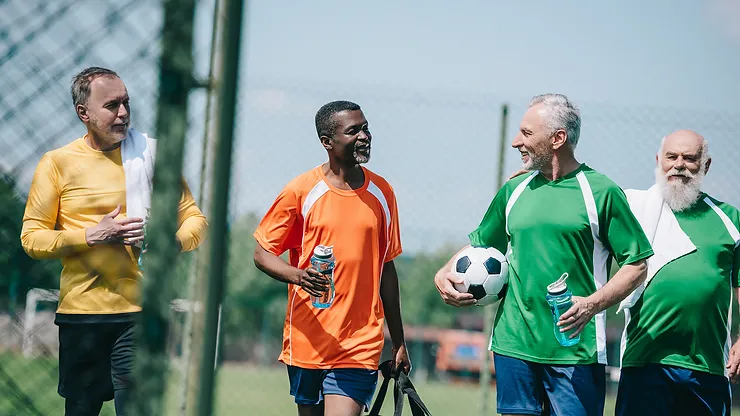By: Grace Liu
In 2011, Chesterfield FC Community Trust, in Derbyshire, England, launched a new program, walking soccer. Soccer is very physically demanding, so walking soccer is more accessible for adults to participate.
In walking soccer, players cannot run or job with the ball. Other rules include that tackling is only allowed with no contact, free kicks are indirect, and the ball cannot go over head height. Walking soccer is also played on a smaller field, and there are only six people on a team instead of eleven.
When walking soccer first started, many people laughed and thought it was a joke. Yet now, there are over 600 walking soccer clubs in England alone for both men and women. Walking soccer clubs are also popping up in places like Seattle, Chicago, South California, Vancouver, and a few other cities in North America.
Walking soccer is a safe and inclusive sport that can benefit one’s physical and mental health. Players have lost weight and logged around 3,000 steps in one game.
George Gorecki, who is 62, founded Walking Soccer Chicago. He used to play competitive soccer, but stopped after having arthritis in his knee. Many older members of Walking Soccer Chicago found themselves unable to play soccer before the modified, walking version.
“Walking soccer opened a door that would have otherwise stayed closed,” said Gorecki.
A 2020 review of research showed that walking soccer may have health benefits, and the sport helped people socialize as well. In addition, a 2015 study showed that 12 weeks of 2-hour sessions a week of walking soccer significantly reduced body mass percentage body fat in 10 men.
Walking soccer also has mental benefits. In a 2022 study, seven men with mental health issues such as depression or anxiety played walking soccer. The men reported positive side effects, and they enjoyed socializing with other players. Many older players also play walking soccer to cope with loneliness. “We are not just a walking football team, we are a football family,” said Sherrick, a walking football player.
“Research shows that older adults who play sports have a higher level of self-efficacy and express stronger feelings of personal empowerment, as well as enhanced self-confidence and self-worth,” said Amy Chan Hyung Kim, associate professor of sports management at Florida State University.
England is also home to the Federation of International Walking Football Associations (FIWFA). Some FIWFA countries are Italy, Nigeria, South Korea, India, and Australia. The World Nations Cup, the walking soccer equivalent to the World Cup, will take place in August in the UK.
Walking soccer has benefited many older adults both physically and mentally, and it has given them an opportunity to be active and socialize.
Link to article: https://eb18600f7bb2916037f5ee8e636ce199.cdn.bubble.io/f1690134838548x129056601873389400/What%20are%20the%20rules%20and%20health%20benefits%20of%20walking%20soccer_%20-%20The%20Washington%20Post.pdf











